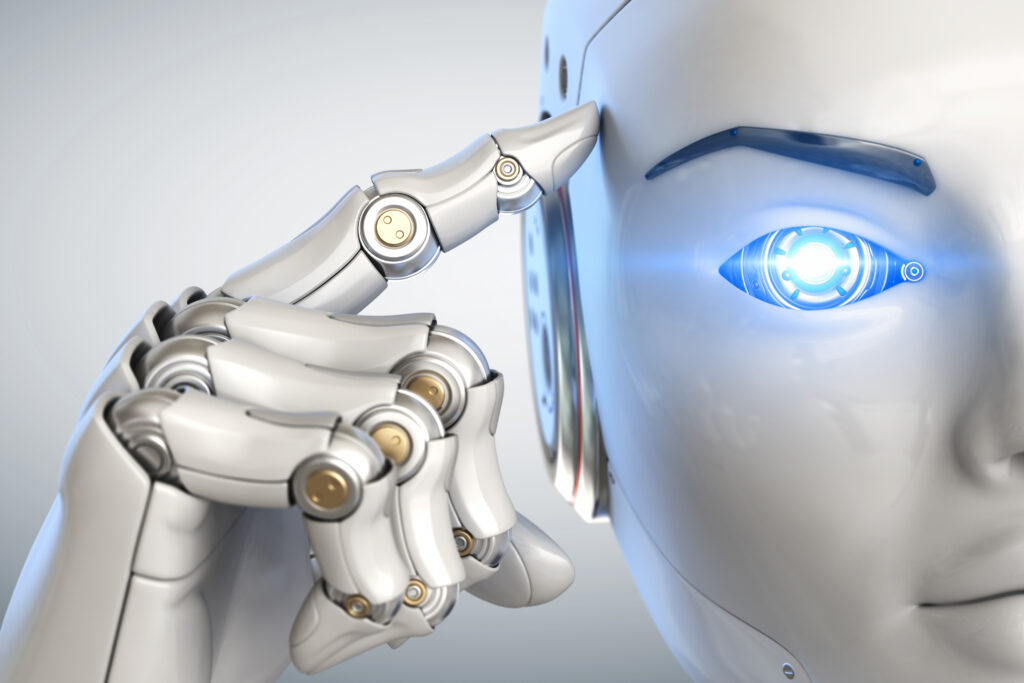Artificial intelligence (AI) is a game-changer in the world of digital marketing, offering remarkable potential to make processes more efficient and personalized. AI mimicking human decision-making and behavior empowers marketing teams to craft successful strategies and streamlined workflows.
With data playing a crucial role in AI’s capabilities, it’s no wonder that data collection and protection have become hot topics in the business world.
Handling and analyzing the massive amounts of data generated in digital marketing can be challenging. That’s where AI technologies step in, providing a solution for businesses to tap into the power of big data and take their marketing performance to new heights.
By leveraging AI, marketers can unlock new opportunities, create tailored customer experiences, and ultimately achieve better results.
- How Companies Leverage AI in Digital Marketing
- Customer Data Analysis
- Content Suggestions and Personalization
- Email Marketing
- Customer Service
- Social Media Marketing
- Advertising and Ad Targeting
- Predictive Analytics and Sales Forecasting
- Key applications of AI in digital marketing
- AI in CRM
- AI Chatbot Applications
- AI in Digital Advertising
- AI in Content Marketing
- AI in SEO
- AI and User Experience (UX)
- Envisioning the Future of AI in Marketing
- Hyper-personalization
- Predictive Analytics
- Enhanced Marketing Automation
- Voice and Visual Search Optimization
- Emotion and Sentiment Analysis
- Cross-channel Marketing Integration
- Ethical Considerations and Transparency
- Conclusion
How Companies Leverage AI in Digital Marketing
Companies are increasingly harnessing the power of AI in digital marketing to create more engaging and targeted campaigns. By employing AI technologies, marketers can better understand their customers, predict their behavior, and deliver highly personalized experiences.
Here’s an overview of how businesses leverage AI in various aspects of digital marketing:
Customer Data Analysis
AI helps companies gather and analyze large volumes of customer data, such as browsing history, purchase history, and demographic information.
Machine learning algorithms can identify patterns and trends in this data, providing valuable insights into customer preferences, behavior, and sentiment.
These insights can be used to inform marketing strategies, enabling businesses to target their campaigns more effectively and efficiently.
Content Suggestions and Personalization
Natural Language Processing (NLP) and machine learning techniques enable AI to analyze and understand text and user behavior, allowing it to generate personalized content suggestions for individual users.
By offering tailored content recommendations based on user’s interests, preferences, and browsing history, companies can create more engaging and relevant experiences for their audience.
Email Marketing
AI can optimize email marketing campaigns by analyzing user engagement data, such as open rates, click-through rates, and conversion rates.
With this information, AI can help businesses identify the most compelling subject lines, content, and send times, enabling them to improve their email marketing performance.
Additionally, AI can personalize email content for individual recipients, resulting in higher engagement and conversion rates.
Customer Service
AI-powered chatbots and virtual assistants are revolutionizing customer service by providing fast, efficient, and accurate support. These tools can handle routine inquiries and tasks, freeing up customer service representatives to focus on more complex issues.
AI can also analyze customer interactions to identify trends and areas for improvement, helping companies enhance their customer service processes and strategies.
Social Media Marketing
AI can help businesses optimize their social media marketing efforts by analyzing user engagement data and identifying the most effective content types, posting times, and targeting strategies.
AI-powered tools can also generate personalized content, schedule posts, and monitor social media platforms for brand mentions and sentiment, enabling businesses to manage their social media presence more effectively.
Advertising and Ad Targeting
AI is critical in digital advertising, particularly in ad targeting and optimization. Platforms like Google Ads and Facebook Ads use AI algorithms to analyze user data and serve ads most relevant to their interests, demographics, and online behavior.
This results in higher click-through rates, better conversion rates, and more efficient use of advertising budgets.
Predictive Analytics and Sales Forecasting
AI-powered predictive analytics tools enable businesses to forecast sales trends, customer behavior, and market fluctuations.
By leveraging these insights, companies can identify opportunities and risks, optimize their marketing strategies, and allocate resources more effectively.

Key applications of AI in digital marketing
AI in CRM
AI-enhanced customer relationship management (CRM) systems not only facilitate efficient data access but also enable companies to predict customer needs and preferences.
By analyzing customer data, AI-driven CRM systems can identify trends, anticipate customer requirements, and suggest personalized offers or products to boost customer satisfaction and loyalty.
Example: Amazon uses AI-powered CRM to analyze customer browsing and purchase history, delivering tailored product recommendations to each user. This personalization level increases customer engagement and leads to higher conversion rates and repeat purchases.
AI Chatbot Applications
Advanced AI chatbot applications can analyze customer queries to understand the context, sentiment, and intent behind them. This allows chatbots to provide more accurate and relevant responses, enhancing customer experience.
AI chatbots can also learn from customer interactions and adapt their responses over time to improve their performance.
Example: Fashion retailer H&M uses an AI chatbot to provide personalized styling advice based on customers’ preferences and existing wardrobe items. This interactive approach lets customers receive real-time fashion advice while shopping, creating a more engaging and satisfying experience.
AI in Digital Advertising
AI-driven digital advertising solutions can optimize ad placements, creatives, and budgets in real time, ensuring that ads are shown to the right audience at the right time.
By analyzing user behavior and historical campaign performance, AI can identify patterns and trends to deliver more relevant and engaging ads.
Example: automotive company Volvo partnered with AI platform Rocket Fuel to optimize its digital advertising campaigns. By leveraging AI to analyze audience data and optimize ad placements, Volvo achieved a 22% increase in conversion rates.
AI in Content Marketing
AI helps streamline content marketing by making audience targeting more efficient. Nestle, for example, uses NLP technology to generate personalized content for different audience segments.
AI-based content generation tools like Jasper, Writesonic, Content at Scale and ChatGPT can create various content types, although human editing is still essential for ensuring quality.
In addition to audience targeting and content generation, AI can help companies optimize their content marketing strategies by identifying trending topics, monitoring competitors’ content, and suggesting content gaps that can be filled.
AI-powered content analytics tools can also analyze user engagement metrics to identify high-performing content types and formats.
Example: The New York Times uses AI to recommend personalized content to readers based on their reading history and preferences. By delivering tailored content experiences, the publication keeps readers engaged and encourages them to explore more content on the site.
AI in SEO
Artificial intelligence plays an increasingly significant role in search engine optimization (SEO) by automating keyword research, content optimization, and technical SEO tasks.
AI-driven SEO tools can analyze large amounts of data, identify patterns, and provide actionable insights to help marketers improve their website’s search engine visibility and rankings.
Example: the AI-powered SEO tool BrightEdge uses machine learning algorithms to provide real-time recommendations for content optimization, keyword targeting, and backlink building.
By automating these tasks, marketers can focus on creating high-quality, engaging content that drives organic traffic and conversions.
AI and User Experience (UX)
Artificial intelligence can create more intuitive and personalized user experiences by analyzing user behavior, preferences, and feedback.
AI-driven UX tools can identify pain points in the user journey, suggest design improvements, and automate tasks such as user testing and analysis.
Example: Airbnb uses AI to analyze user preferences and deliver personalized search results and property recommendations. By tailoring the user experience to each individual’s needs and preferences, Airbnb ensures a seamless booking process and improves customer satisfaction.
Envisioning the Future of AI in Marketing
The future of AI in marketing is expected to be characterized by further innovation, increased efficiency, and deeper personalization.
As AI technology advances, its applications in marketing will become more sophisticated, leading to new opportunities for businesses to connect with their customers in meaningful ways.
Here are some potential developments that could shape the future of AI in marketing:
Hyper-personalization
As AI algorithms become more advanced, they will be able to deliver even more personalized experiences to users. This could include highly customized content, recommendations, and offers based on a user’s browsing history, preferences, and behavior. Hyper-personalization will enable companies to engage with their customers on a deeper level, fostering stronger relationships and increasing brand loyalty.
Predictive Analytics
AI-powered predictive analytics tools will play a more significant role in marketing, enabling businesses to forecast customer behavior, sales trends, and market fluctuations. This will help marketers identify potential opportunities, risks, and areas for improvement. By leveraging these insights, companies can make more informed decisions, optimize their marketing strategies, and allocate resources more effectively.
Enhanced Marketing Automation
AI will continue to streamline marketing processes by automating a wider range of tasks, from content creation and campaign management to customer segmentation and data analysis. This increased level of automation will allow marketing teams to focus on strategic planning and creative tasks while AI handles the more repetitive and time-consuming aspects of marketing operations.
Voice and Visual Search Optimization
As voice and visual search technologies become more prevalent, marketers must optimize their content and strategies for these new search formats. AI will play a crucial role in helping companies adapt to these changes by analyzing user behavior, identifying trends, and providing actionable insights on optimizing content for voice and visual search.
Emotion and Sentiment Analysis
Advancements in AI-driven emotion and sentiment analysis will enable marketers to better understand their customers’ feelings and attitudes toward their brands, products, or services. This information can create more emotionally resonant marketing campaigns, improving customer engagement and driving stronger connections between consumers and brands.
Cross-channel Marketing Integration
AI will help marketers create seamless cross-channel experiences by analyzing data from multiple channels, identifying patterns, and suggesting the most effective ways to engage customers across different platforms. This will enable companies to deliver consistent, personalized experiences throughout the customer journey, regardless of the channel used.
Ethical Considerations and Transparency
As AI becomes more integrated into marketing, ethical considerations, and transparency will become increasingly important. Marketers must consider issues such as data privacy, consent, and the potential for AI-driven biases. Ensuring that AI systems are transparent and adhere to ethical guidelines will be crucial for building trust with consumers and maintaining a positive brand reputation.
Conclusion
In conclusion, the future of AI in marketing is expected to bring further innovation, efficiency, and personalization. By staying up-to-date with the latest developments and adapting their strategies accordingly, marketers can harness the power of AI to create more impactful and engaging campaigns, ultimately driving business success.




Pingback: The Power of AI in Social Media: A Game-Changer for Online Interactions - AI Reviews | AI Blog | Endorsed AI
Pingback: The Best AI Productivity Software Tools of 2023